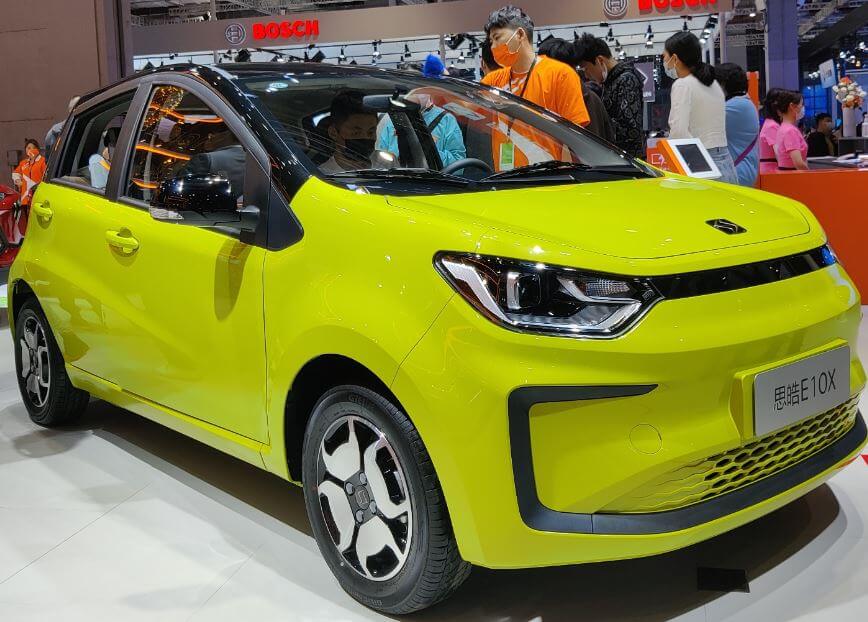Last week it was reported that China’s JAC and Volkswagen Anhui car manufacturer have created a test electric vehicle using a sodium-ion battery. “We judge that the application of sodium-ion batteries in the new energy vehicle market will start with the A00-class EVs, which is why we chose a model like the Sehol E10X for our installation trials,” said the company in a WeChat announcement.

The use of sodium-ion batteries in such small cars reflects the major issue with sodium batteries to this point: energy density. A sodium-battery powered car simply cannot go as far as a car powered by a lithium-ion battery of the same size.
The sodium-ion batteries used by JAC/Volkswagen report an energy density of 141Wh/kg (watt-hours per kg). By contrast, the lithum batteries used in Tesla’s Model 3 sit at 260Wh/kg.
Sodium-ion batteries have also previously had safety concerns related to dendrite formation on the electrodes, according to researchers at UT Austin. This would cause sodium batteries to catch fire if recharged too quickly. The researchers suggest that manufacturing changes will mean sodium ion batteries will ultimately be able to be recharged as quickly as lithium batteries.
Despite these hurdles, investment in sodium cells appears to be a particular point of interest in China. The world leader in battery manufacturing has had to import 70% of the lithium for its batteries and is keen for alternatives.
Sodium is far more abundant than lithium, cheaper, and easier to dispose of. Even without established economies of scale, sodium ion batteries are 20-40% cheaper than lithium batteries.
They also perform far better in cold weather. Sodium batteries retain 90% of their charge at -20 degrees, By contrast, one study claimed the average lithium battery-powered car loses 40% of its charge once temperatures fall to -6 degrees.
Lithium ion batteries also use cobalt, which is predominantly sourced from the Democratic Republic of Congo. The trade facilitates mercenary armies and lawlessness across the country.
With its energy density advantages, lithium will remain the leading option for high-performance vehicles and potentially aircraft. However, sodium looks set to become the mass market options for electric vehicles in the coming two decades.
Follow Christian on Twitter for more news updates.
Sign Up To Our Free Newsletter